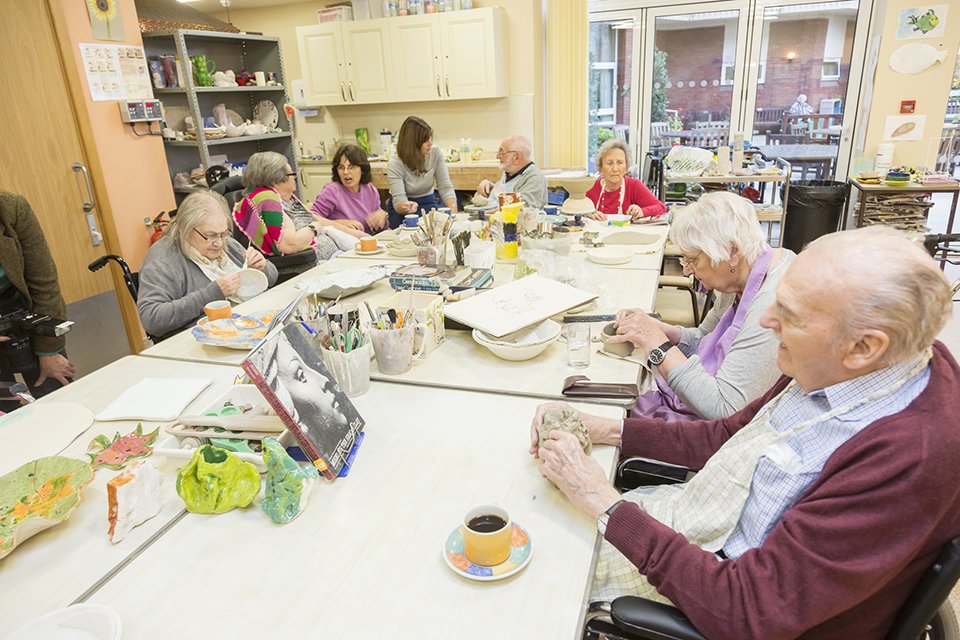
THESE Are the Underestimated Methods to Reduce Dementia, Experts Agree

The number of dementia cases in U.S. is quickly growing with its aging population. According to a report by Centers for Disease Control, the death toll from Alzheimer’s alone has increased by 55 per cent from 1999 to 2014 and the number is expected to quadruple by 2050.
Dementia, a group of brain and memory-related diseases like Alzheimer’s that affects people in every age, can have a number of debilitating symptoms including confusion, memory loss, and cognitive decline. There are at least 5.7 million people in America suffering from the diseases today, out of which 30 per cent are of the age of 85 or above.
Although scientists have been unsuccessful in developing a cure for dementia, there are a number of lifestyle changes you can make while you’re young to reduce the disease risk in old age.

More than 5.7 million Americans suffer from dementia, with 30 per cent of them above the age of 85
Stimulating Your Brain with Activities
Some of the most successful entrepreneurs may have tempted you with their high school drop-out stories but researchers are now saying that going to school is important for a number of different reasons – reduced risk of dementia being one of them. According to studies, people who received less than 10 years of formal education had much higher chance of developing the mental illness than those finished high school or college.
But even people who are past the age of going to school can take up a number of mentally stimulating hobbies to keep the dementia risk at bay. Some activities that have been scientifically proven to challenge the brain and improve cognition include learning new languages, playing chess and developing problem-solving skills.
Be Socially Active
Scientists who have conducted various dementia researches in the past noticed one common theme across people who had higher risk of developing the illness: they were all less socially active than those who didn’t show early signs of cognitive decline.
Loneliness and social isolation triggers a number of psychological illnesses later in life such as depression, anxiety, and memory loss. Taking part in social activities such as visiting family and friends, conversing on the phone, doing community work, or being involved in groups, can significantly reduce your risk of dementia in old age. It’s important to note that the disease risk doesn’t depend on the size of your social group as much as how often you are engaged in social activities.

Being socially active is healthy for your mental wellbeing and studies show that it also reduces the risk of cognitive decline in old age
Watching Heart Health and Waistline
Your general health is a pretty good indicator of how well you’re going to live in old age. So, naturally, if you’re in poor shape, have high blood pressure and cholesterol, your physical health will affect your mental wellbeing in the long run. Studies have found a strong link between weight gain in mid-life and dementia risk, and some even claim that conditions like obesity and high blood pressure can increase the chances of getting the mental illness by 12 per cent.
Be More Physically Active

Exercise has a million different benefits including a delayed onset of memory loss and cognitive decline in old age. One study involving 33,000 participants showed that people who were highly active reduced their risk of dementia by almost 40 per cent in comparison to their inactive counterparts.
But how much exercise do you really need to stay physically and mentally fit, and do all types of physical activity affect the risk of dementia equally? These are some of the questions which have been highly debated in the scientific community but there is some consensus that 45 to 60-minute workout sessions of moderate intensity give the best results for preventing cognitive decline in old age.
Quit Smoking
It goes without saying that smoking is bad for your health – not just your lung and heart health, but also your brain and memory health. The harmful chemicals found in cigarettes are known for causing inflammation in organs including the brain. Smoking also triggers the production of free radicals in our body which cause damage to our cells and lead to cognitive decline in old age. Studies have shown that smokers have a higher chance of developing dementia than those who don’t smoke.
More in Mental Health
-
What Is Unipolar Depression? Here’s What You Need to Know Right Now
Depression casts a long shadow over many lives, with symptoms that affect everything from our energy levels to our ability to...
June 7, 2024 -
A Comprehensive Guide on How to Heal Anxious Attachment Style
If you often find yourself seeking constant reassurance from your partner or requiring endless validation to feel secure, you may be...
June 1, 2024 -
Why Is My Skin Peeling on My Face After Skincare? Here’s What You Need to Know
Experiencing skin peeling on your face after implementing a skincare routine can be perplexing and frustrating. This phenomenon, where the skin...
May 23, 2024 -
What Is a Mental Edge, and How Do You Get It?
Have you ever wondered why some individuals seem unshakably confident under intense pressure, finding a way to excel when it matters...
May 15, 2024 -
When to Worry About Varicose Veins? Here’s What You Need to Know
Varicose veins are a common issue, affecting about 20% of adults. They’re usually seen as unsightly blemishes on the legs but...
May 12, 2024 -
Why Is Discipline Important: The Ultimate Guide to the Importance of Discipline
Discipline is undoubtedly one of life’s most crucial character traits. It shapes how we approach tasks, manage our time, and...
May 3, 2024 -
Have I Fallen Out of Love or Am I Depressed? Everything You Need to Know
Have I fallen out of love or am I depressed? You’re not alone in this query. In the diversity of human...
April 26, 2024 -
What Does Lung Cancer Breath Smell Like?
Cancer is one of the most formidable diseases of our time, characterized by the uncontrolled growth of cells that invade and...
April 20, 2024 -
Making Major Life Changes? Discover 5 Crucial Things Before You Leap
Life changes are a pivotal part of our journey, marking the transition from one phase of life to another. These changes,...
April 13, 2024















You must be logged in to post a comment Login